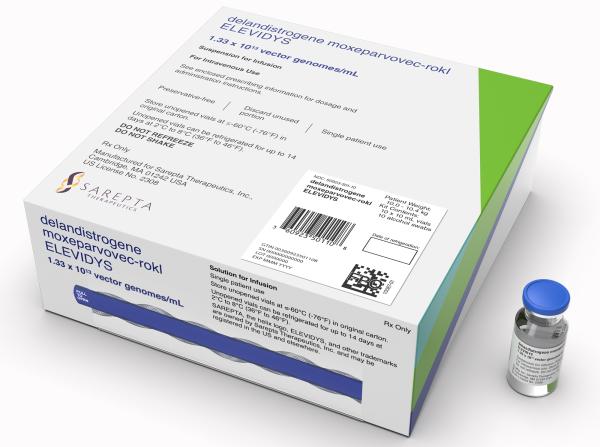Elevidys Disease Interactions
There is 1 disease interaction with Elevidys (delandistrogene moxeparvovec).
Delandistrogene moxeparvovec (applies to Elevidys) hepatic impairment
Moderate Potential Hazard, Moderate plausibility. Applicable conditions: Liver Disease
Administration of delandistrogene moxeparvovec in patients with hepatic impairment, acute liver disease, chronic hepatic conditions, or elevated GGT has not been studied. Treatment with this drug should be carefully considered in patients with preexisting-existing hepatic impairment or chronic hepatic viral infection as this population may be at increased risk of acute serious liver injury. Postpone administration of delandistrogene moxeparvovec in patients with acute liver disease until it is resolved or controlled. Elevated liver function tests are commonly reported in patients after treatment with this drug. Assess liver enzymes prior to treatment, and then monitor liver function weekly for 3 months after infusion, or until results are unremarkable.
Switch to professional interaction data
Elevidys drug interactions
There are 33 drug interactions with Elevidys (delandistrogene moxeparvovec).
More about Elevidys (delandistrogene moxeparvovec)
- Elevidys consumer information
- Check interactions
- Compare alternatives
- Drug images
- Latest FDA alerts (2)
- Side effects
- Dosage information
- During pregnancy
- FDA approval history
- Drug class: miscellaneous uncategorized agents
Related treatment guides
Drug Interaction Classification
| Highly clinically significant. Avoid combinations; the risk of the interaction outweighs the benefit. | |
| Moderately clinically significant. Usually avoid combinations; use it only under special circumstances. | |
| Minimally clinically significant. Minimize risk; assess risk and consider an alternative drug, take steps to circumvent the interaction risk and/or institute a monitoring plan. | |
| No interaction information available. |
See also:
Further information
Always consult your healthcare provider to ensure the information displayed on this page applies to your personal circumstances.


